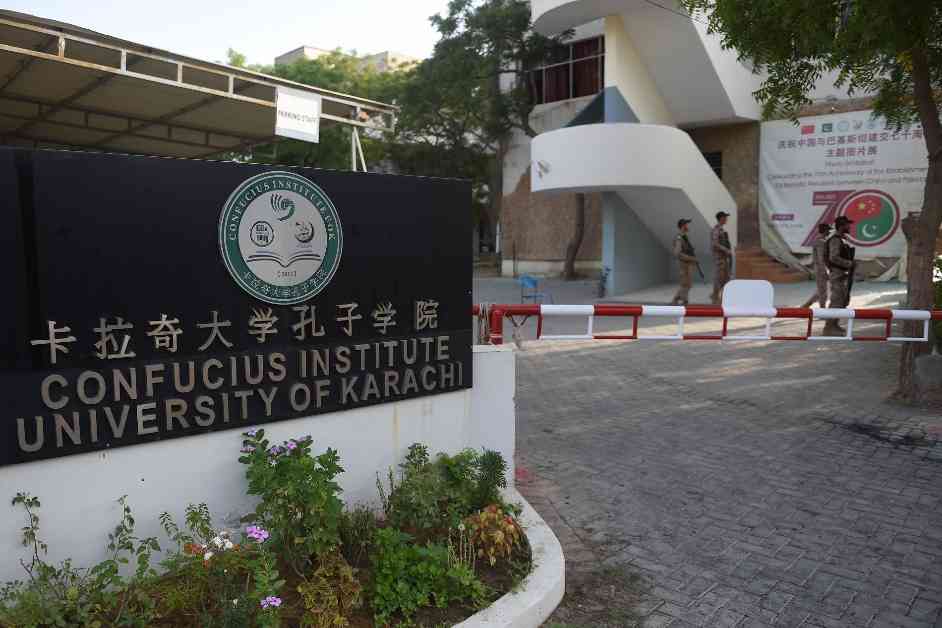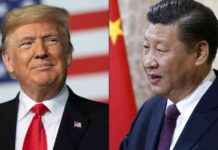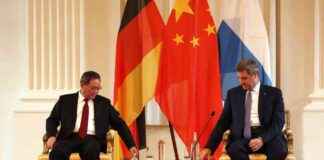China’s Scholarships and Cultural Diplomacy: Strengthening Ties with Africa
In Washington, D.C., China has a negative reputation for its treatment of Muslim minorities, but the views differ greatly in many majority-Muslim countries in Asia. Educational programs and exchanges play a crucial role in shaping perceptions and fostering relationships. Pakistan stands out as an exemplar in this regard, with more than 28,000 students studying in China in 2019, making it the top destination for outward-bound students.
Pakistan’s ambassador to China, Khalil Hashmi, highlighted Pakistan’s significant contribution to sending students to China, ranking it among the top three countries. According to China’s Ministry of Education statistics from 2018, the top sender countries included South Korea, Thailand, Pakistan, India, and the U.S.
While China offers generous scholarships, many families have financed their own or their children’s studies in China, particularly for medical degrees. Chinese universities provide a range of programs such as Chinese language, engineering, and computer science, which are popular among Pakistani students. Educational consulting companies serve as intermediaries between potential students and Chinese universities, facilitating the application process.
Aidah Baloch, a student from Balochistan province in Pakistan, received a grant from the Chinese Scholarship Council (CSC) in 2022. She expressed gratitude for the fully funded scholarship, which covers all her expenses and provides a monthly stipend for her Ph.D. studies. The CSC, established in 1996 by China’s Ministry of Education, aims to promote educational exchange by offering various scholarships for Chinese and foreign students and scholars.
The number of scholarships available to Pakistani students has increased in conjunction with the expansion of the China-Pakistan Economic Corridor (CPEC), a significant component of the Belt and Road Initiative. This initiative has bolstered educational cooperation between China and Pakistan, with both governments offering scholarships for study in China.
In addition to scholarships, Beijing funds educational initiatives within Pakistan, including the establishment of Confucius Institute schools that teach Chinese language and culture. These institutes, embedded within local universities, have become vital hubs for promoting Chinese studies in Pakistan. The Pakistan-China Institute reports that nearly 30,000 Pakistani students were learning Chinese through these programs in 2022.
Furthermore, Chinese-funded courses at vocational training institutes across Pakistan aim to enhance Chinese language proficiency in remote areas. The collaboration between Chinese and Pakistani universities under the CPEC Consortium of Universities has led to the establishment of China studies centers to promote academic cooperation.
Chinese officials in Pakistan express a desire to further expand scholarships and cultural exchanges to strengthen bilateral ties. The Consul General of China in Karachi, Yang Yundong, emphasized the importance of increasing scholarships for Pakistani students in the future to deepen educational cooperation between the two countries.
While educational opportunities in China have been well-received by many Pakistani students, there are underlying concerns and challenges. Resentment towards Chinese development projects in Pakistan, particularly in Balochistan, has sparked violence and opposition. The Baloch Liberation Army’s attack on the Confucius Institute at the University of Karachi in 2022 underscored the tensions surrounding Chinese presence and influence in the region.
Despite the benefits of studying in China, some Pakistani students and parents have expressed reservations about the cultural and societal differences they encounter. Reports of acculturative stress, perceived discrimination, and challenges in adapting to Chinese norms have been documented among Pakistani students studying in China.
Moreover, the silence of Pakistani authorities and political groups on human rights abuses against Muslims in Xinjiang has raised ethical concerns among citizens. The strategic alliance between Pakistan and China has led to a lack of public condemnation of China’s treatment of Uyghurs and other Muslim minorities, reflecting a complex dynamic between the two nations.
While some Pakistani students appreciate the cultural exchange and educational opportunities provided by China, others remain critical of the political implications and human rights issues associated with Chinese influence. The diverse perspectives among Pakistani students studying in China highlight the nuanced relationship between the two countries.
In conclusion, China’s scholarships and cultural diplomacy initiatives play a significant role in strengthening ties with African nations like Pakistan. The educational exchange programs foster mutual understanding and collaboration, despite underlying challenges and tensions. As China continues to expand its educational outreach in Africa, it is essential to address the complex socio-political dynamics that impact student experiences and perceptions.

















